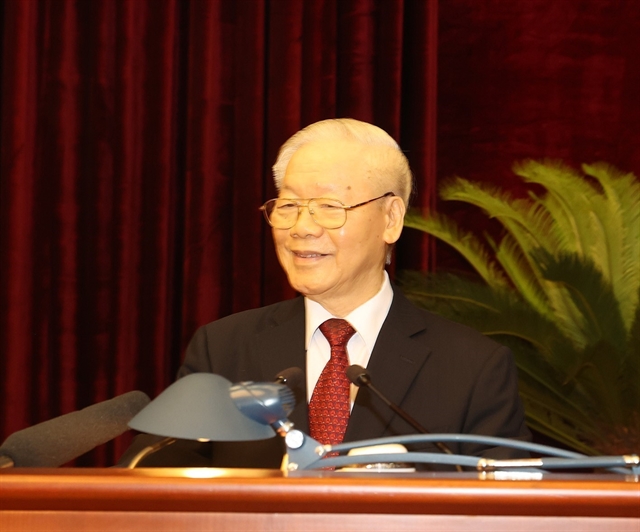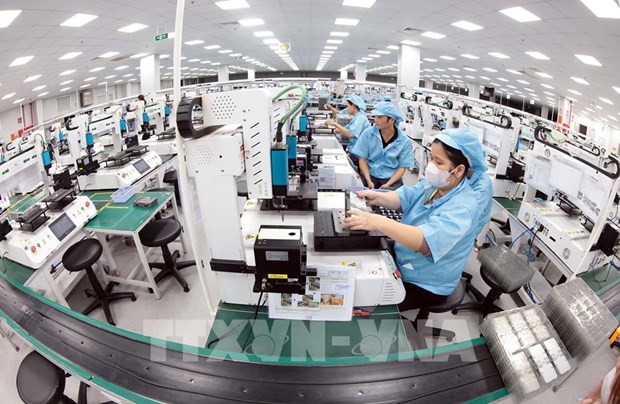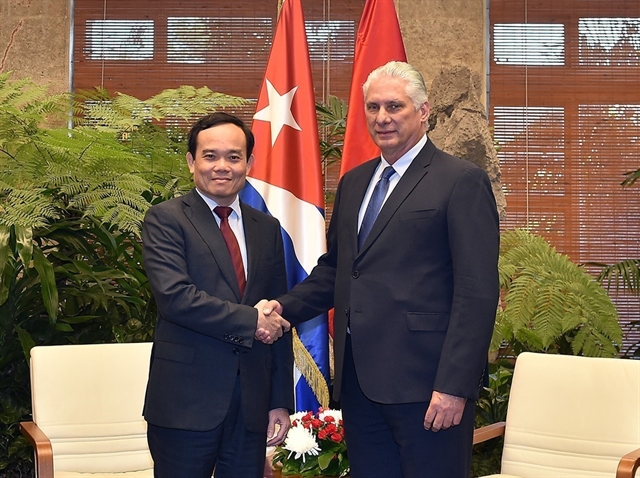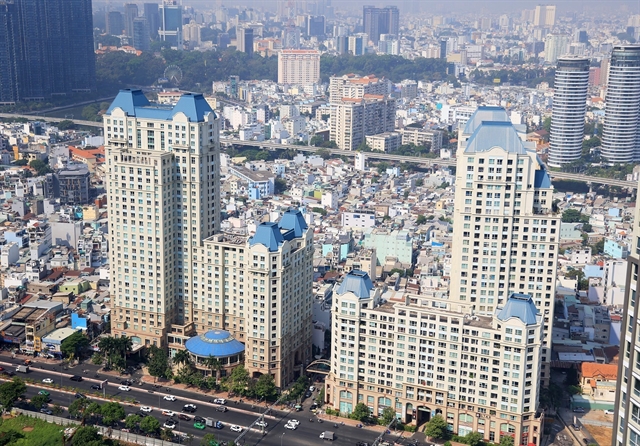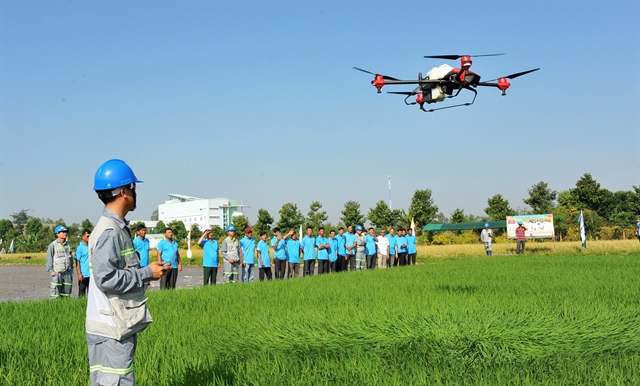 Society
Society
.jpg)
Smart rice farming is offering high profits for farmers in the Cửu Long (Mekong) Delta as the model has adapted well to climate change and is environmentally friendly.
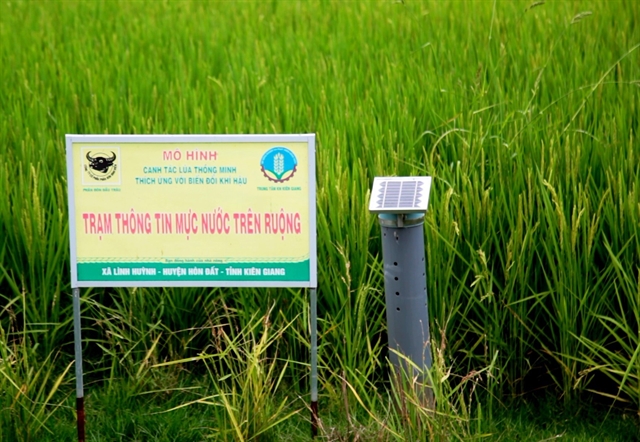
|
| A smart rice farming model used in Kiên Giang Province’s Hòn Đất District. – VNA/VNS Photo Hồng Đạt |
HCM CITY – Smart rice farming is offering high profits for farmers in the Cửu Long (Mekong) Delta as the model has adapted well to climate change and is environmentally friendly.
Smart rice farming includes the use of advanced technologies like smart rice seeding, transplanting machines and other smart devices that irrigate rice fields.
It uses less rice seed, pesticides and fertiliser compared to traditional rice farming methods while the yield and quality of the former are not less than that of the latter.
In Kiên Giang Province, which is the country’s largest rice producer, the model offers high efficiency for the members of the Cây Chôm Agriculture Service Co-operative in Hòn Đất District’s Lình Huỳnh Commune after they have implemented the model for one year.
In early 2019, the Bình Điền Fertiliser Joint Stock Company helped the co-operative to implement the model, including buying advanced facilities like water monitoring facilities and pumps which are installed at irrigation water resources and rice fields.
The company also provided farming techniques, supplied input materials, and guaranteed outlets for the co-operative members.
The co-operative’s members use their smart phones to monitor the quality of irrigation water and the level of irrigation water in rice fields. They can detect when they need to irrigate rice fields and the proper times to pump irrigation water from the river into rice fields.
The co-operative has 30 members who cultivate a total of 148ha of rice.
Nguyễn Văn Vui, a member of the co-operative, said during the rice cultivation period, co-operative members can actively monitor the irrigation water levels in rice fields and pump irrigation water into or out of rice fields.
“We work less harder than previously, but the production efficiency is higher.”
Lình Huỳnh is located in a low-lying area so rice fields are often inundated when there are rains and in the flooding season.
With advanced facilities for smart rice farming, farmers can now actively pump water out of flooded rice fields so they can grow rice on schedule.
According to Lê Hoàng Anh, deputy chairman of the Lình Huỳnh Commune People’s Committee, the yield of smart rice farming fields in the commune is 1.5 times higher than traditional rice farming fields in the commune.
The commune will encourage more farmers to join the co-operative to expand the area of smart rice farming.
In Hậu Giang Province, farmers in Vị Thủy District’s Vị Thắng Commune, have planted 24ha of rice under the smart rice farming model in the 2019 – 20 winter – spring crop, up 15.2ha against the last rice crop.
The implementation of smart rice farming in the commune began last year and is now implemented mostly in the commune’s Hamlet 7 and Hamlet 9.
The model offers a profits of 20 -30 per cent higher than traditional rice farming methods, according to farmers.
The Hai Huynh Agriculture Service Co-operative in Hamlet 7 is one of the two co-operatives in the commune implementing smart rice farming.
Trần Văn Huynh, director of the Hai Huynh Agriculture Service Co-operative in Hamlet 7, said: “Smart rice farming helps the co-operative’s members reduce production cost …. and offers higher profits.”
The co-operative’s members earn a profit of VNĐ30 million (US$1,290) per hectare a crop from smart rice farming.
The co-operative will expand smart rice farming area this year.
Many rice farmers in the commune are switching to smart rice farming because of its production efficiency.
Phạm Thị Linh, deputy chairwoman of the Vị Thắng Commune People’s Committee, said the commune was encouraging farmers to expand smart rice farming areas. – VNS
.jpg)
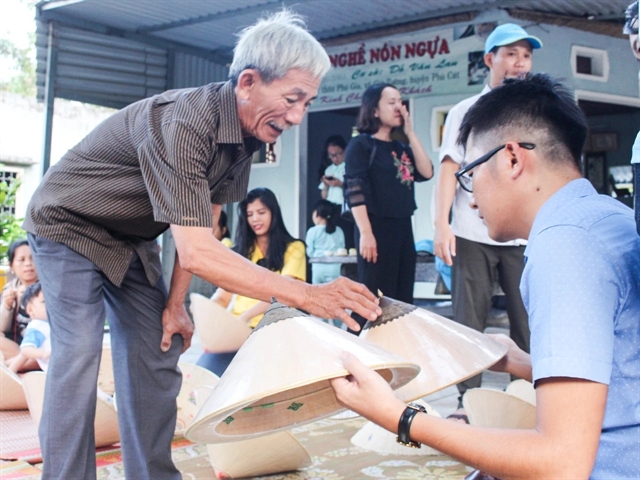
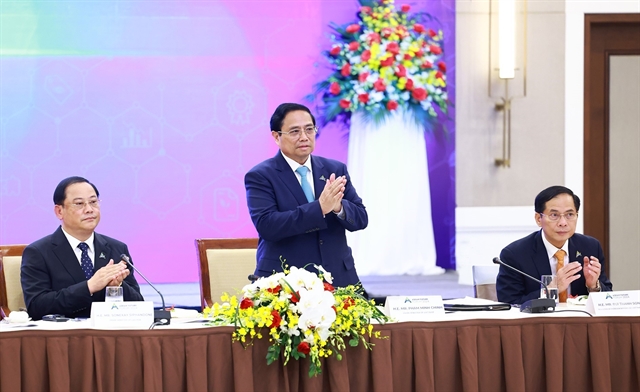
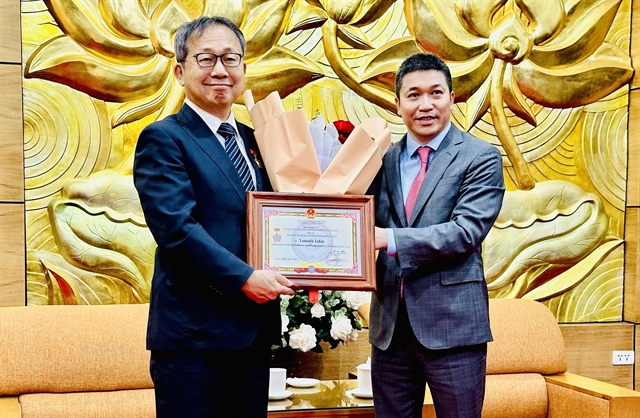
.jpg)
